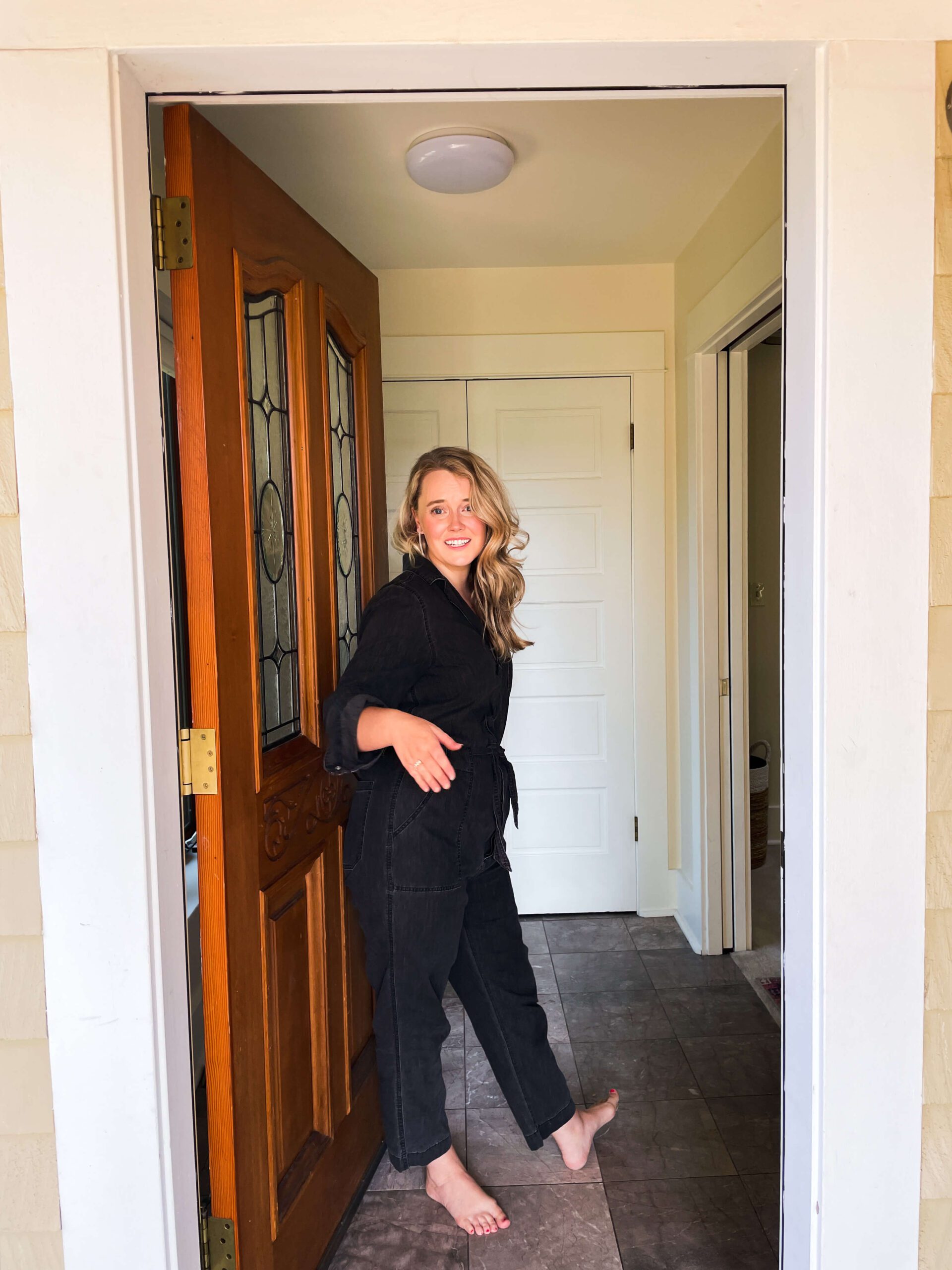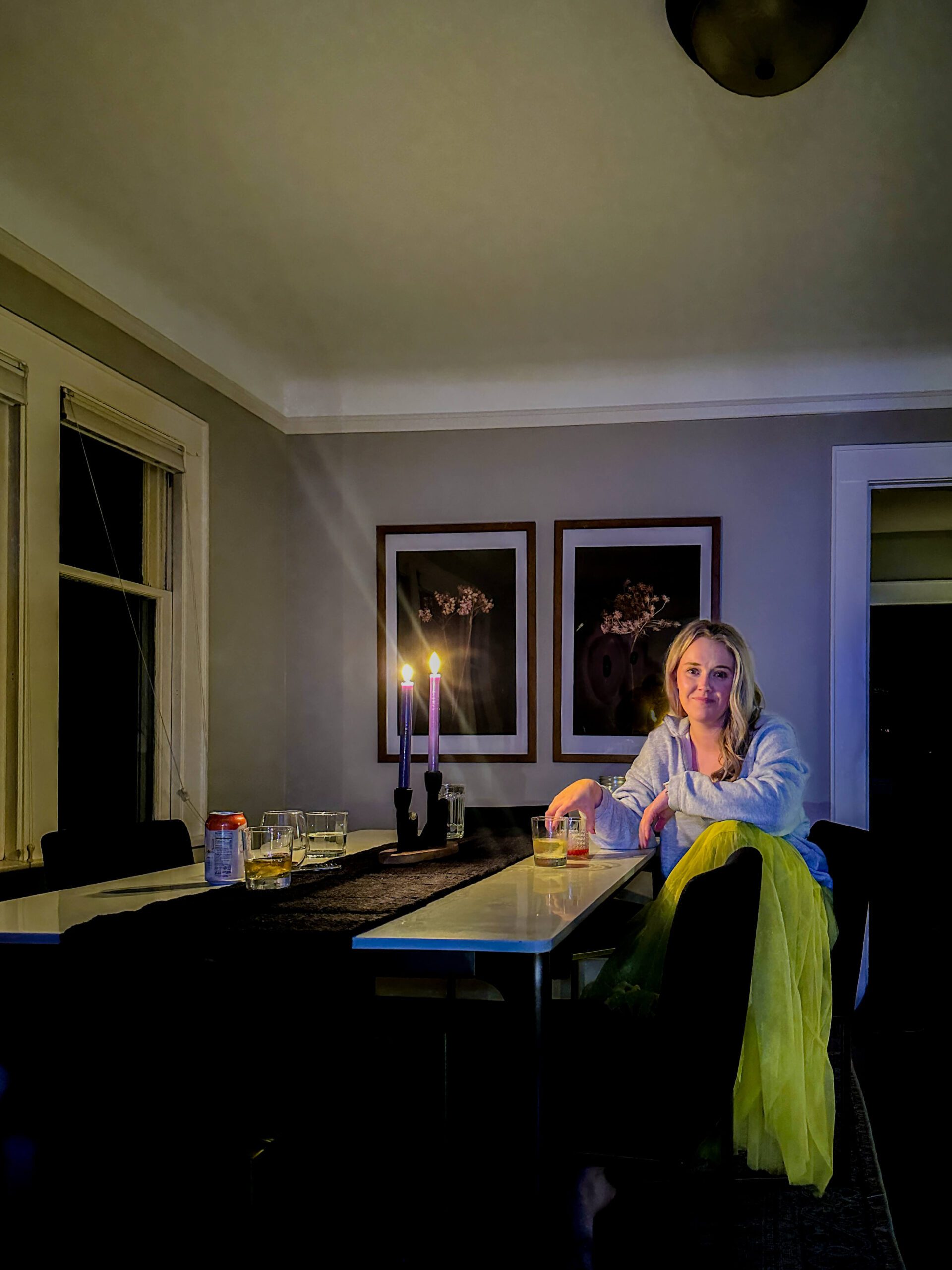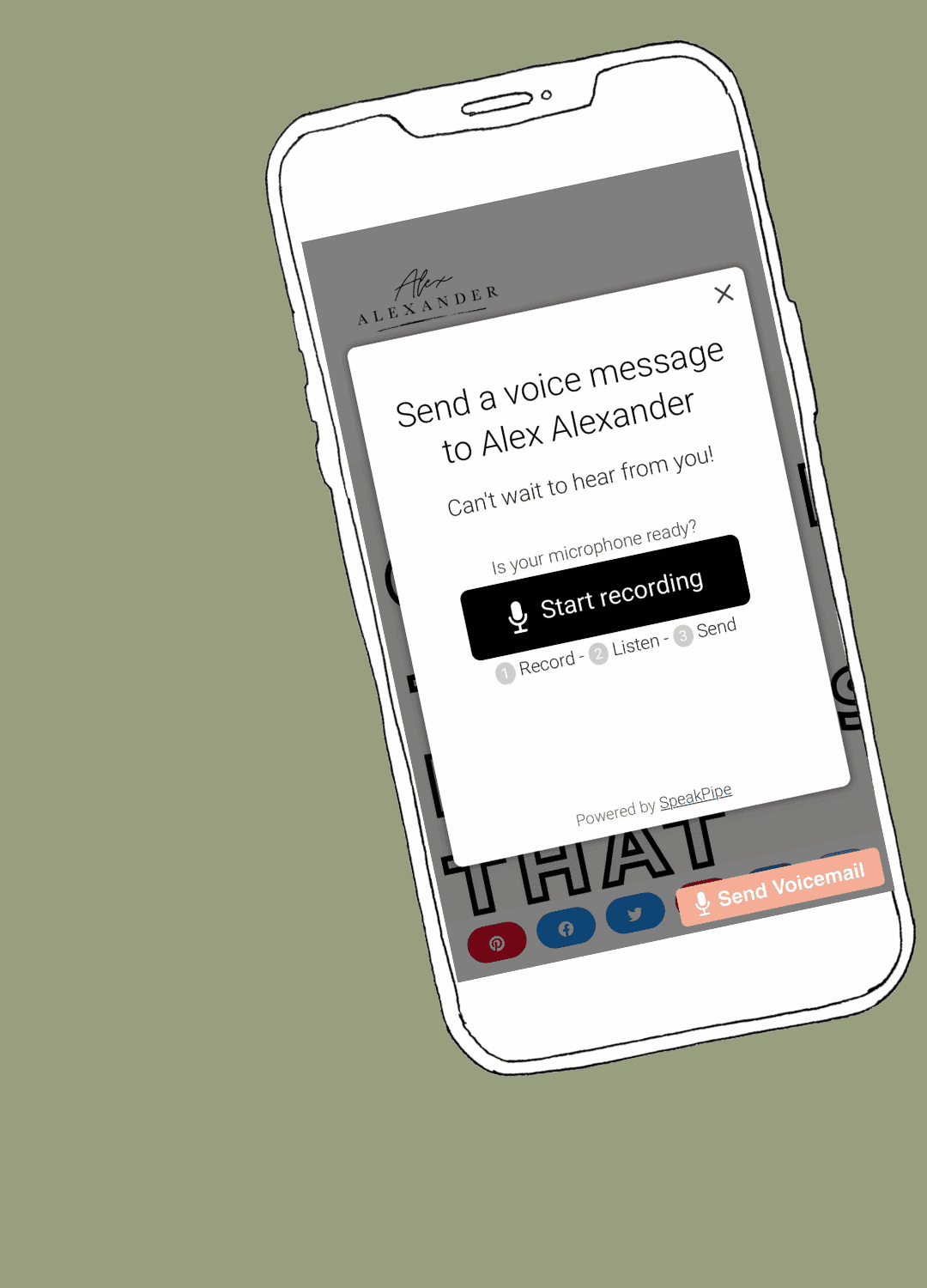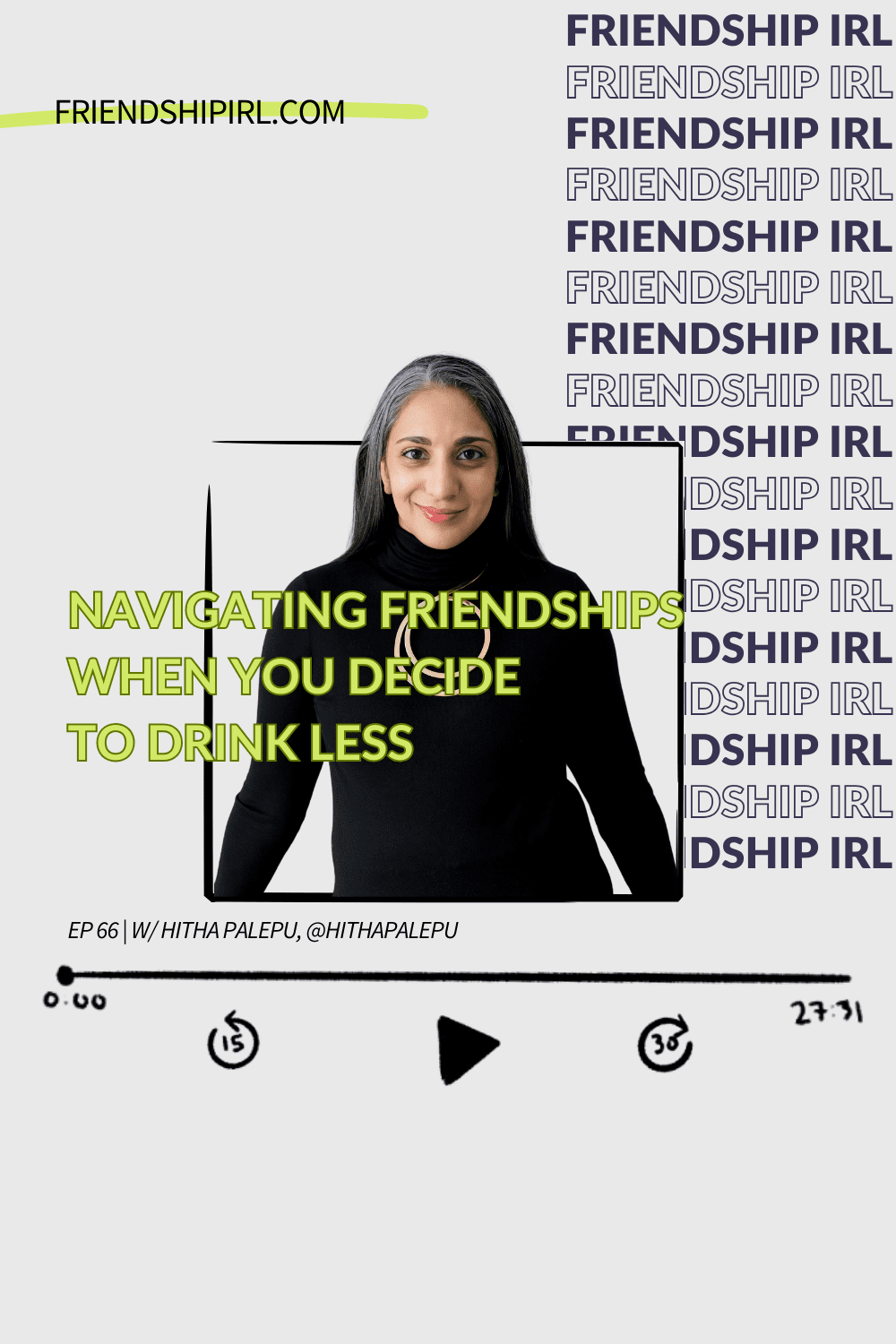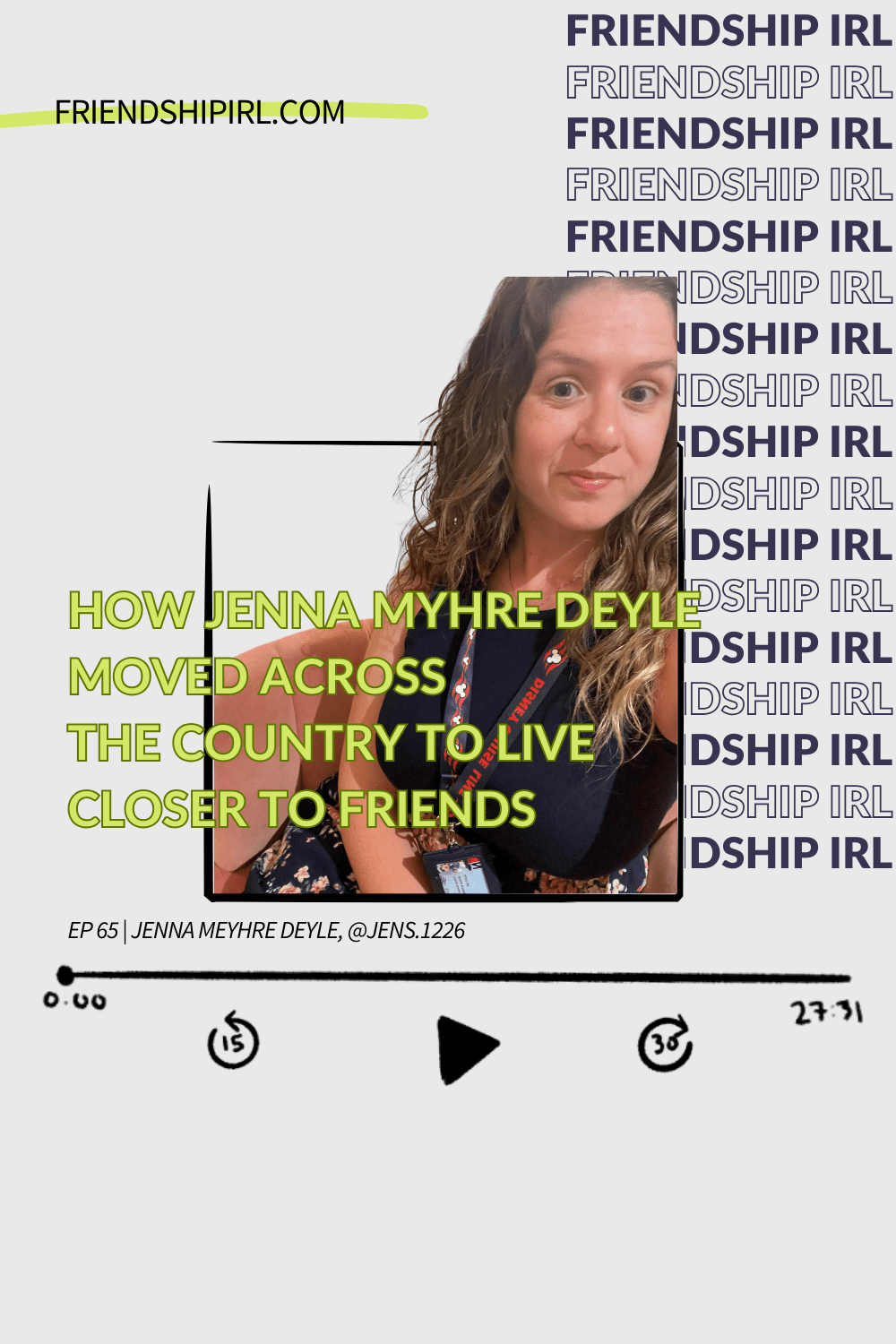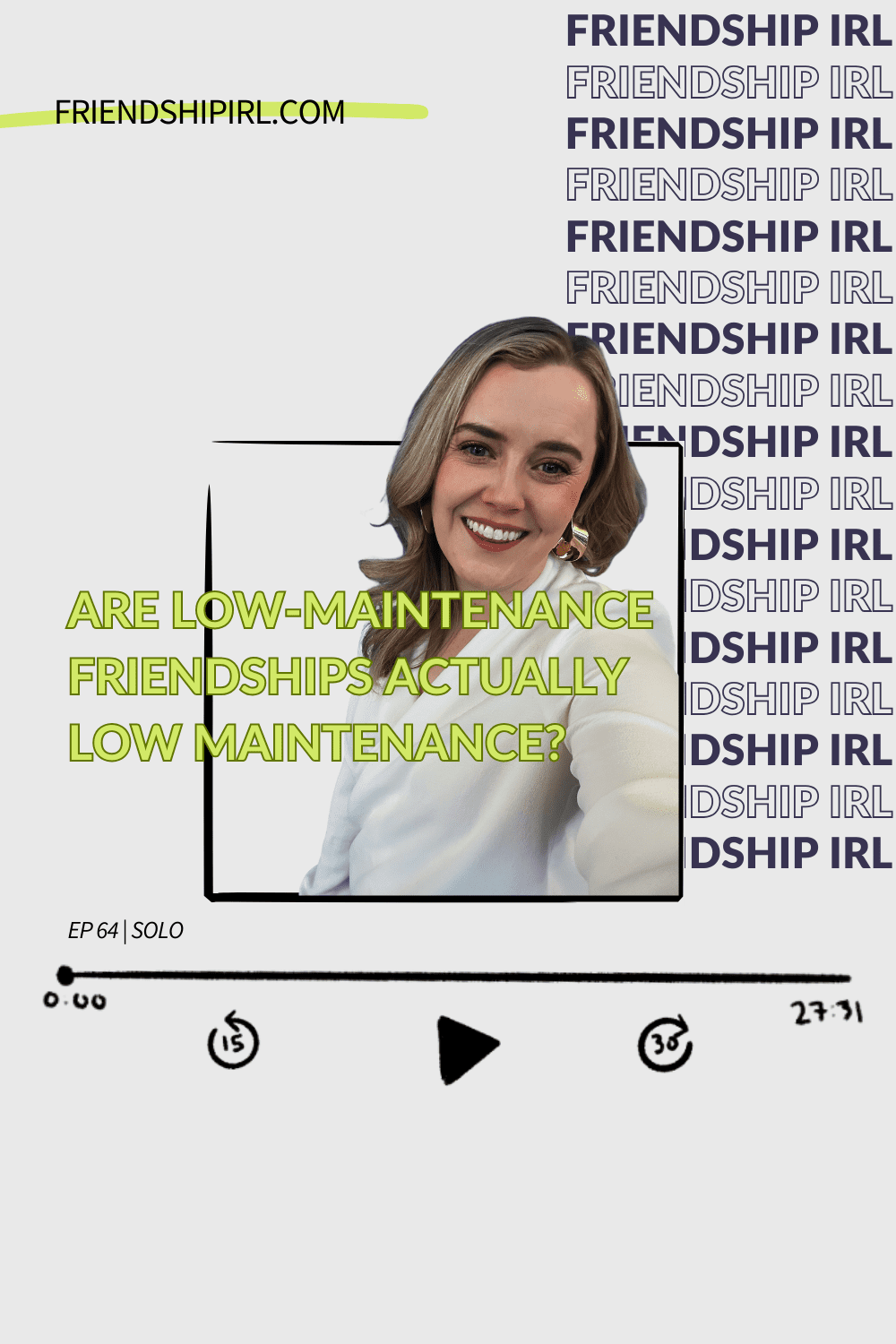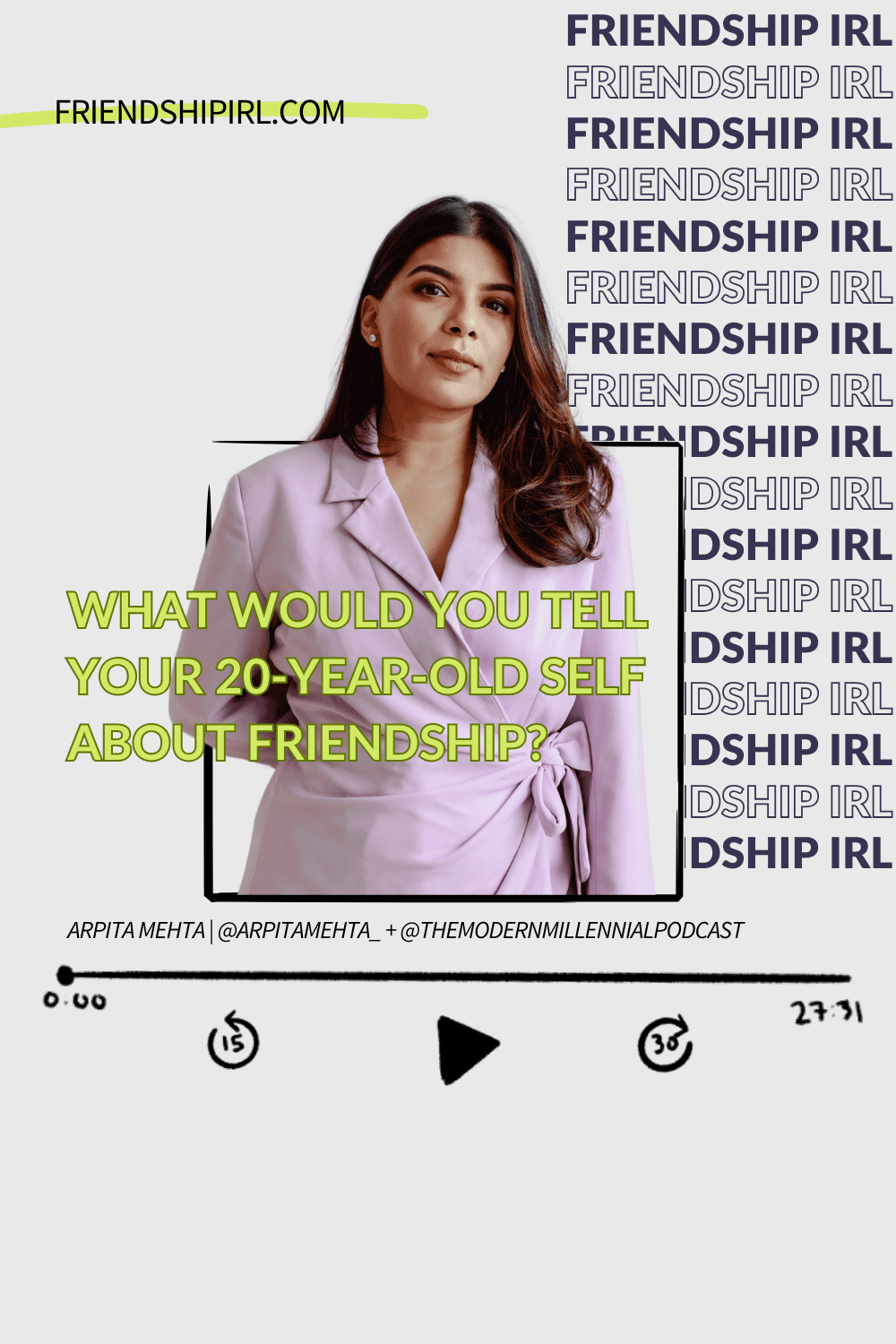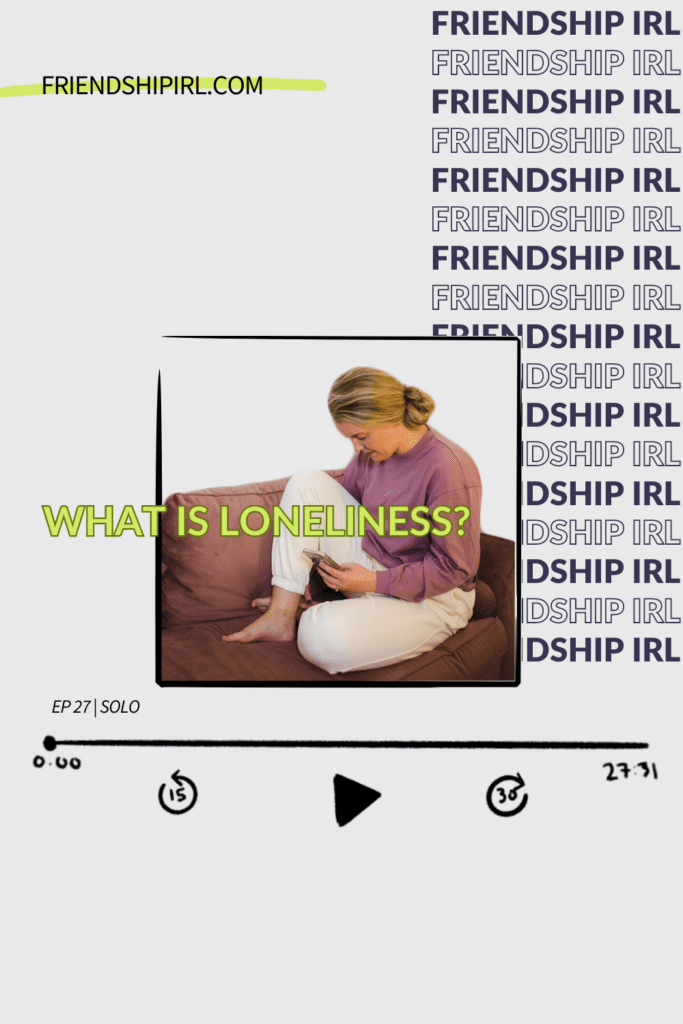
Podcast Description
What is loneliness? It’s a feeling a lot of people are having nowadays. And if we can get to the heart of this question, we can come up with some strategies to minimize it for ourselves.
Cigna conducted a study in 2022 and revealed that 58% (!) of people say they always or sometimes feel like people don’t know them well.
So today I want to talk about loneliness. I want to talk about its definition, the 3 types that researchers have found, and why I think having an understanding of the concept of loneliness can help us combat it.
Loneliness does not have to be an elusive mystery. There are things we can do to redirect our energy and slowly chip away at this feeling so we can all feel a little less lonely.
In this episode you’ll hear about:
- The definition of loneliness, and how it differs from social isolation. Isolation is a risk factor for loneliness, but it is not loneliness
- 3 dimensions of loneliness: intimate or emotional loneliness, relational or social loneliness, and collective loneliness
- Why some of our loneliness can be blamed on our expectations that come from societal messages, pop culture, mass media, social media, or even expectations we’re holding on to about a certain friendship
- How to recalibrate our expectations by ignoring the the shiny, unrealistic highlight reels of someone else’s life in favor of celebrating the quiet moments we have with friends that may not be that interesting from the outside looking in
- The incredible value of pouring into our “weak ties” and building a broader support system, rather than focusing on one or two relationships
Reflection Question:
Let’s talk about expectations. Where do your expectations of marriage, friendships, and acquaintances come from? Where are you getting your expectations, and are they realistic in this season of your life?
Notable Quotes from Alex:
“We kind of forget, it’s this collective unit. All these relationships that build together to make us have a strong sense of social wellness. And lack in any one of these dimensions can leave us feeling lonely. Loneliness can be a transient feeling that comes and goes, it doesn’t have to be constant. And it can also be situational. It could be that you feel lonely on a certain holiday because you have an expectation of certain people being around you and they aren’t. Loneliness can be chronic, meaning that it lasts for a really long time, then you feel it all or most of the time. And loneliness can be characterized by its intensity, as in how strongly we feel it, which can change from moment to moment or after certain periods of time. It doesn’t have to be constant.”
“The quiet moments of friendship aren’t always that exciting. They aren’t always that interesting from the outside. But whether they’re interesting or not doesn’t matter. What matters is that we feel good about them with our friends. So if that means sitting on the couch, you and a friend and reading your own books, that is not going to get great ratings on TV. But it might feel really good to you and your friend in real life. So in the end, we’re sitting here comparing our messy reality to these highlight reels, and idealized, catchy connections that we see on TV.”
Resources & Links
Learn more about loneliness at Campaign to End Loneliness and read their facts and statistics about loneliness here.
Check out the book Together: The Healing Power of Human Connection in a Sometimes Lonely World by Vivek H. Murthy.
Leave Alex a voicemail!
What is Loneliness?
@itsalexalexander The only way to make new friends is to put yourself out there. Despite it being awkward, putting yourself out there is part of the process.
♬ original sound – veggibeats
@itsalexalexander Most people have some imaginary line for when someone is your friend” and your so focused on how far away you are instead of appreciating what that friend bring to your life. #friendshipcoach ♬ AaAaAaAaAaAaAaAaAa – cacaphobictortillaman
Until next time…
Take the conversation beyond the new podcast on friendship! Follow Alex on Instagram (@itsalexalexander) or Tiktok (@itsalexalexander), or send her a voice message directly.
Episode Transcript
Podcast Intro 00:02
Alrighty, gang. Here’s to nights that turn into mornings and friends that turn in family. Cheers!
Podcast Intro 00:18
Hello, Hello, and welcome to the Friendship IRL podcast. I’m your host, Alex Alexander. My friends… They would tell you; I like to ask the hard questions. You know who I am in the group? I’m the person that’s saying, “Okay, I’m going to ask this question, but don’t feel like you have to answer it.” And now, I can be that friend for you, too.
Alex Alexander 00:50
Hi, everyone. We’re gonna do things a little different. Today, we’re gonna go a little definition, we’re going to dive into some statistics. And that’s normally not my style. But I think this was going to be a great episode. We obviously know I talk a lot about community and friendship. Really, I think all human connection. And I’m so focused on where we can go, what we can build, what would feel good, that I don’t spend a ton of time thinking about where we are. Recently, I’ve been taking a little bit of a step back and trying to just get the lay of the land. Like, really, what are the stats saying about the current state of how everybody feels about their social connections. And something I realized is, I didn’t really know how to describe loneliness. I had never looked up a definition, I never thought that much about it. I can definitely tell you about times I have felt lonely. For example, in 2020, roughly one week before everything shut down, I actually had a complete freak out one night, it was a Friday night. And I worked from home by myself. But because I just switched up my job, I wasn’t going out for meetings all the time. So I was really just home alone during the week. And that was not previously my normal. And it was Friday night. Michael had come home. One night, we had plans with some friends on that Friday. And they had had a long week, something to come up there to cancel. Now, this shouldn’t have been that big of a deal. But I lost it. I was so upset, not at them. I totally understood that they needed to cancel, but something just fell off. I was not okay. And I had to excuse myself from her home and go on a little walk to try and figure out what was wrong. And I realized I was incredibly lonely. All week long, my loneliness, my social interaction hinged on those Friday, Saturday night hangouts with our friends. So when they canceled, all this anticipation I had had all week was not going to play out, wasn’t going to happen. And I was devastated. What I realized is, we had those Friday, Saturday night hangouts. Maybe Sunday, I don’t know, maybe random here or there. But my lack of day to day connection with people was really wearing on me. And although I left the house, go to the grocery store, maybe go on a walk, neither of those places, I was talking to that many people, perhaps the cashier at the grocery store, but that’s a pretty quick interaction. And then the main place, the other place I was going was yoga. And although I said hi to the person who checked me in, I would get on my mat, I would silently practice. I would get my stuff and I would leave. So, I really didn’t have that much social interaction. Now, of course, I had Michael, my husband at the time, so I wasn’t lacking in a partnership. But I did feel incredibly lonely, and I had no idea and even telling you that story, before preparing for this episode. I really couldn’t tell you what loneliness is. And I think that we need to get to the heart of this idea of what is loneliness. Because if we can get to the heart of that, maybe we can come up with some strategies to minimize it for ourselves. The other thing I think is you know, when we talk about loneliness, we often think about this one person who is really lonely. Like really, really lonely. Feels like they have no one. But in reality, we all feel lonely sometimes in one way or another And there are plenty of people who are suffering from loneliness, even though it’s not that extreme case where our brain goes, those small moments of loneliness and types of loneliness are just as valid. We don’t have to sit in those. I said this episode’s a little different. I am going to share some statistics today. Not too many, but a few. And these come from a study that Cigna, one of our largest insurance providers in the US did in January of 2022. It is their loneliness in the workplace study. But really, it’s, I mean, gosh, I think it’s like a 50, almost 50 page document that covers loneliness of all types. And in this study, they say that 58% of people say that they always, or sometimes feel like no one knows them well. 58%. 52% reported that they sometimes or always feel alone. And that’s just to say that, that is a very large percentage of people walking through this world, who whether they say it or not, whether it’s a constant, feeling a momentary feeling, overwhelming. This is a feeling that a lot of people are having. So today I want to talk about loneliness. I want to talk about its definition, the three types that researchers have found, and why I think having an understanding of the concept of loneliness can help us combat it. So first of all, let’s talk actually about loneliness, versus social isolation. I just want to get this out of the way. Because many people think of loneliness as social isolation. If I asked what is loneliness, most people would describe actually the definition of social isolation. You see, loneliness is a subjective feeling that you are lacking social connections you need. And we’ll get way deeper into the definition of loneliness here in a bit. You can feel stranded, abandoned, cut off from the people with whom you belong. Even if you are surrounded by other people. Loneliness is feeling like you’re missing closeness, trust, affection, community friends, whereas social isolation is the objective state, the objective physical state of being alone and out of touch with other people. The objective physical state. Now, isolation is a risk factor for loneliness, but it is not loneliness. So, what is loneliness? Now, there are a few definitions out there, if you, you know, Google it, it’s like being sad about lacking friends or people, it’s not a very great definition. So I found this definition, published on the campaign to end loneliness as website. And it’s from a study which I will mark in the show notes if you want to go read further. But the definition of loneliness is loneliness is a subjective, and welcome feeling of lack or loss of companionship, which happens when there is a mismatch between the quantity and quality of the social relationships we have, and those that we want. So, what are the takeaways there? One, it’s a feeling, a feeling of lack. And it’s a feeling of lack that happens, because what we expect is different than our reality. It is the discrepancy between what we desire and what we currently have. Which, you know, when I created my roots theory, and all that kind of stuff, I knew that expectations were important, but reading that really makes me feel like expectations are a key component that we need to be evaluating. And we’ll talk a little bit more about that later. But first, I want to read you this quote from a book called Together. This book was written by Vivek H. Murthy, who was our 19th Surgeon General of the US. It’s just one paragraph, I promise it’s not too long. It says, loneliness occurs when our social experience fails to meet our social expectations. We tend to feel lonely when something goes wrong. And we don’t have the make friends the way we should. Or we marry the person we should, or interact with our neighbors and colleagues as we should. All these shoulds quietly seep into us as we grow up. They include the expectations for love, friendship, and community that are modeled by our family, schools, workplaces, neighborhoods, and the larger culture that surrounds us.
PODCAST EPISODE! How to Make Friends as a Grown-Up. Give it a listen!
Alex Alexander 10:31
We also absorb these norms through the messages transmitted by television movie and our social media feeds. And when our own social life doesn’t mirror the cultural norms around us, we tend to feel lonely. So really, what is loneliness? Loneliness is our internal comfort level. And that matters, because we could have periods where we’re really focusedmaybe on ourselves, or our work or our passion. And we aren’t lonely. But we could also be in a room full of people, and feel lonely. And all that matters is our own internal comfort level, our own feelings based on that discrepancy between what we want and what we have. So if we go on and look at this, researchers have identified three dimensions of loneliness. The first one is what they call intimate or emotional loneliness, which is a longing for close confidants or intimate partners, who can share a deep bond with us of affection and trust, and 49% of people, always or sometimes feel as if they lack companionship. 45% of people say they sometimes or always feel like they are no longer close to a single person in their life. 45%. Now, these close confidants or intimate partners could be a variety of people, it could be a romantic partner, perhaps a close relationship to a family member, a close friend, best friend. But this is one of three dimensions of loneliness. The second dimension is relational or social, which is yearning for quality friendships, and social companionship and support. And 47% of people say that none of their relationships are meaningful, which to me, speaks of that quality companionship and support 47%, saying none of their relationships are meaningful. The final dimension of loneliness is collective. This is a hunger for that network or community of people who share your sense of purpose, or interests. This is moving through your day, and feeling connected to the people and the places that you go. And 61% of people feel like their interests and ideas aren’t shared with those around them. Now, these three types of loneliness kind of hit on that your people framework that I created. Because I think so often, these relationships are really talked about as, let’s focus on family or let’s focus on friends, let’s focus on romantic partnership, relationships with our children, that we kind of forget it’s this collective unit. All these relationships that build together to make us have a strong sense of social wellness. And lack in any one of these dimensions, can leave us feeling lonely. Because loneliness can be a transient feeling, that is that it comes and goes, it doesn’t have to be constant. And it can also be situational could be that you feel lonely on a certain holiday. Because you have an expectation of certain people being around you and they aren’t. Loneliness can be chronic, meaning that it lasts for a really long time, then you feel it all or most of the time. And loneliness can be characterized by its intensity, as and how strongly we feel it, which can change from moment to moment or after certain periods of time. It doesn’t have to be constant. It doesn’t have to be in all the ways any one of those sections. Dimensions, I suppose can be loneliness. So in that definition of loneliness, where we talk about the discrepancy between what we desire and what we have, to me, that really speaks to this idea that our expectations are really important. And so often we’re lonely, because we have these expectations that come from societal messages, pop culture, mass media, social media. We also might have expectations about a certain friendship, that that idea of peak friendship, being able to maintain its peak for a really long time, which as I’ve talked about in previous episodes, just isn’t that realistic. But if we had the expectation that that peak would maintain forever, and it doesn’t, then we might be lonely, because that friendship does not meet our expectations. We might feel lonely when things change in our life, when we have new circumstances, where we haven’t yet built support for perhaps a new time in life, like being parents, being caregivers, for elderly family members. Moving across the country, we haven’t built our network of people, perhaps are relational or intimate connections. You might have all of them. Might be lonely, because the way that we envisioned an experience is not playing out. So I think a really great example of this one is marriage. If you got married, and you had an expectation of how your marriage would look, and it does not look that way, you can feel lonely in your marriage. We have certain expectations that are based on these comparisons that we’re inundated with. The social media, feeds the pop culture, the movies, we view these relationships, as a certain way as a standard. And if our friendships don’t match those, then we might feel lonely, because they’re not what we expected. So now we’ve kind of like covered what loneliness is and the different ways we can look at it, that it can be this big feeling or this smaller feeling, it can come and go, all of that is valid. What might we do about loneliness? Now at first, let’s just remember, I’m not a doctor, I am not a therapist. But after looking at all this, part of me just thinks that a piece of the puzzle for loneliness, is honestly having some awareness of the problem we’re facing, having this definition, having some sense of the actions we might take and the things we might do to make an impact and change your life. You know, quite often, when you feel lonely, especially when you’re comparing yourself to other people out there, you might believe that you’re just destined to be a lonely person, that that’s who you are. There might be shame or guilt that your social wellness, that your social connections, look the way they do and feel the way they do. And you know what? You might feel like, you don’t deserve to feel connected to other people. But I’m here to tell you, you are not destined to be a lonely person, this is not just who you are. And you do deserve to feel connected. Next thing is, I think we just need to normalize what loneliness even as we don’t need to have this hierarchy of the person who feels like they have no one, that it is just as valid and normal to feel lonely in one area of your life. Like an experience, not playing out the way you thought it would. That is happening to everyone. Every person likely has some type of loneliness that they are experiencing once or twice a year, if not more.
Alex Alexander 19:07
But if we can talk about loneliness, if we can name it, if we can have these ways to look at it, then hopefully we can start having more conversations about it. We can get out of our own heads, stop being mean to ourselves and saying that this is just who we are. And most importantly, we’ll stop believing that we’re the only ones who feel this way. Because we’re not. Now, we know I love expectations. I love to talk about expectations because I think expectations get us in so much trouble. So the next thing I think we can do is just really examine our expectations. I’ve talked about this before. Where do our expectations of our friendships of a marriage, of an acquaintance, a co worker, where do they come from? Were they cultural, societal, from mass media, from books, from hearing other people talk about their relationships? What about social media? Where are you getting your expectations? And are they realistic in general? But if you take that a step further, are they realistic in the season of your life? Are they realistic amongst your other life responsibilities, and that doesn’t mean you need to lower all your expectations. But I think if your expectation is for your friendships to look like the show friends, and you’re married, and have kids and run a business, the reality probably needs to look different. So if we can adjust and find things that still feel good, for sure. But calibrate our expectations to this new normal, that’s going to make it much easier to reach our expectations. And maybe in another moment in life, they can go back to those bigger, grander expectations. And the final thing about expectations is, do you even want those things that you’re saying you want?
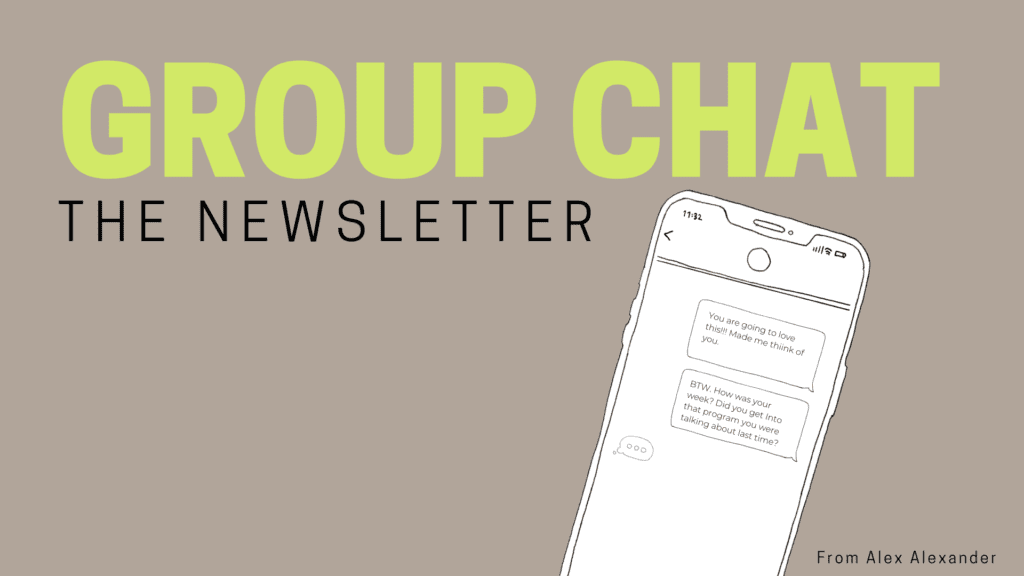
CAN I ADD YOU TO THE GROUP CHAT?
DON'T MISS AN UPDATE - SIGNUP FOR OUR WEEKLY NEWSLETTER.
You’ll get the full scoop on everything we’ve been up to in the last seven days – podcast episodes, blog posts, and updates, plus an exclusive note from Alex every week with her latest, unedited thoughts.
Alex Alexander 21:12
If society, or cultural norms, or pop culture told you that you should have all these friends or want to be roommates with friends or want to travel with friends, hang out with friends all the time, have big parties, whatever it is, whatever it is, do you even want those? Especially… I have an episode coming up about friendships as an introvert. And the episode we really talked about believing that there’s a certain way to be a friend that you should be a friend. And that just doesn’t feel right, necessarily. So then you think you’re a bad friend, because you don’t even want those things. When in reality, if you redefine your expectations, you could actually build friendships that meet your new expectations, your better expectations. And then you wouldn’t feel lonely because you’d know you’d built what felt right to you. And I can’t talk about expectations and not dive a little deeper into my favorite topics, which are social media and pop culture. Because I think we get so many of our expectations from those two places. And if you think about it, social media is wild. Okay? It’s wild. We are sitting at home on our couches, staring at a little screen, watching these curated interactions that somebody could have edited, they could have been the 50th take, they could have been staged. Everybody walk in and laugh, I’m gonna take a video and post it, when really they were fighting 10 minutes earlier. We have no idea. And then while we watch this, we’re like, oh, that’s what friendship should look like. That’s what it should feel like. And we are just watching it. We’re not experiencing any of it to create our realities. The other one is pop culture. Now, TV, movies, whatnot, right, they are created for ratings, they are created for drama, to maintain your interest. So in order to do that, they’re probably doing two things. One of the things they are either showing you like the dream, the ideal, so that you will want it and stay engaged and not click your channel. Or they’re showing you something dramatic, because that’ll get ratings, and again, keep you on the channel, they want your attention. But the third thing I don’t talk much about is they’ll show you like the catchy, fun, extroverted things. Because if you think about it, the quiet moments of friendship aren’t always that exciting. They aren’t always that interesting from the outside. But whether they’re interesting or not, doesn’t matter. What matters is that we feel good about them with our friends. So if that means sitting on the couch, you and a friend and reading your own books, that is not going to get great ratings on TV. But it might feel really good to you and your friend in real life. So in the end, we’re sitting here comparing our messy reality to these highlight reels, and idealized, catchy connections that we see on TV. And that right there when you have the ability to say, “Cut” to end the clip, put it in an app in a program and edit i, change the color, adjust the sound, clip out the parts where somebody’s messy and real. That’s what we’re comparing to. You know if we could see the raw footage, maybe there wouldn’t be so much of a discrepancy but we can’t. That’s not what we’re given. So we really need to be mindful of when our expectations are coming from those things. Because those big dramatic peak friendship expectations, they were scripted, they were edited, they were recorded eight times before they were posted on social media. And that can’t be what we compare to. The next thing I want to go into is I want to talk about once we’ve recalibrated our expectations, once we’ve thought about them, we want to take some time, and figure out where we can invest our energy to make an impact, to actually change our reality. Because I really think society tells us that this is an area of our life where we just have to accept what we’re given or go with the flow. Like, we’re kind of on autopilot. We’re not really… most people are not actively thinking about the kinds of social connections they want and then investing energy. Where it’s like, oh, I wish it was that way. But it’s not. So, that’s a bummer. We’re not taught that this is an area of our life we can have an impact in. But I really, truly think it is. And I say really, truly like I have done it. So I personally know for myself, it is possible. And if you think about it, one, you don’t feel empowered to make an impact. So, that’s rough. But the second is, when you’re on autopilot, it’s often not until you’re at rock bottom, and you’re feeling that complete sense of overwhelming loneliness, that a lot of people decide to invest energy into this area of their life. And that’s similar to being incredibly hangry. For those random persons that have never heard the word hangry, we’ll say famished, you know? You’re utterly famished, you’re starving, and you walk into the grocery store. And you are overwhelmed. Because what do you even eat? Nothing sounds good at this point, you’re kind of shaky. You just desperately want to eat something. So, you don’t feel this way anymore. And that’s the point a lot of people get to, before they are so desperate, that they try new things, they get creative, they put themselves out there. But if we look at the things we’ve just talked about, you can see that there are three areas. Which of those areas are you lonely? Might be all of them. Might be some of them. Some might be different than others. Is it that relational friendship one? Is that the collective? Is it the intimate? Is it all the time? Is it just in certain areas of your life? So for example, is it a certain day? What people do you wish were there? Can you reset your expectations to have it be different people in your life? So like, if it’s family on holidays, and you’re lonely, can you spend time with friends and recalibrate those expectations? Maybe it’s in a new venture, maybe you started a business and you’re really lonely because you want other people who understand this problem. Perhaps it’s in that intimate category. And it’s been really lonely in your marriage. I think separating them out makes a great impact, because it’s less overwhelming to see that it’s one area, but maybe you’re doing well in some others. Or maybe it’s not all of your relational friendship, wellness, your loneliness. It’s just that you wish you had more friends that were also working on this business goal. And we can break it down, then we can start to see where we might try to change it. Now quite often, I think that we talk about loneliness, a lot of people think that the way to solve it are those close relationships. If you haven’t heard of this concept before, there’s something called strong and weak ties. Strong ties are our people, our close people, our best friends, romantic partners, family. Those people like you just… you have strong story roots with them. You know they’re your people. And weak ties, our connections to our acquaintances or community. Just honestly, people around us like trusting strangers in public. And endless studies show that Western culture just really doesn’t value weak ties anymore. We don’t really trust strangers. We don’t find relationships with acquaintances important. We aren’t as active in formal community. So it makes sense why we offer and immediately think of our strong ties, our close relationships when we’re lonely, that that’s the problem. And it might be, you know, perhaps you’re feeling lonely overall, that would be a lot. If you can break it apart and think to yourself, okay, what if I can make an impact in one area? A lot of people are going to choose those intimate connections, close ties, so best friends finding a romantic partner, reinvesting in family. Now, there’s nothing wrong with that. But in order to build those, those require a lot more effort. Right? We need a lot more roots to build those connections. You know, to go from an acquaintance to a best friend takes time. So if that’s what you want, that’s going to be a longer journey to check off one box of loneliness of the three. But if we can start to value those weak ties, those simpler relationships more than if you’re someone that is famished, and just desperate for connection, you can start to invest in those collective relationships and some of those relational connections. And really see the value in building that. See the value in weak ties, see the value in like, the journey of building this broader support system around you instead of feeling like you need to invest a lot into finding just like those one or two relationships. Because I think that if you start to invest in those weak ties, you know, your community, acquaintances, similar friendships, that you can start to see the actions that you’re taking in those pay off. It’s like watching the money slowly rise in your bank account. I all that mattered was hitting your end goal, but you didn’t appreciate every time it went up, that would be rough. At what point would you give up? But if every time you open it up, and you see that there’s a little bit more in there, a little bit more. That’s another 10% closer to your goal. If you appreciate the journey, you’re a lot more likely to keep going. And that’s why I’m constantly talking about the value of our simple friendships, of our formal community, because studies show that we as a society just don’t appreciate those as much anymore. But that’s where we find all those deeper, closer relationships that we really have been pushed, I do mean pushed, by societal messages to think are the ultimate instead of seeing the entire system as valuable around us. Now, I do want to acknowledge a couple of things that make this harder, because there are structural things that make loneliness more likely. And I’m going to bring up two of them. The first one is the pandemic. Being stuck at home, the social isolation, really diminished our connections. And we’re obviously in a state of needing to rebuild. But the other one, which is something that I am going to do more episodes on is just actually the way our society is structured. So for example, there’s this concept called third places, which are the places that are not your work and not your home. They are a third place that you would go and gather regularly. Bowling Alleys, parks, neighborhood cafes, and suburban living, building codes, dependency on cars, single-family homes, with backyards, where you have no need to go sit in your front yard, where you might run into a neighbor.
PODCAST EPISODE! What is a Friend? and the 4 Types of Friends We All Have. Listen here.
Alex Alexander 34:06
All of these are structural things that make building these connections harder. So if you are somebody who is feeling incredibly lonely, I’m saying this because you should know that there are systems in place that are making this harder for you. That if we lived in different ways, you might have a neighborhood cafe, where when you do feel lonely, you would just go and over time you develop those collective connections there, possibly even build some friendships. You’d have a place that you felt like you could go, but because we’re lacking that our third place has become social media and TV. But because we’re not actually living in those places, we’re not out there experiencing them. It’s been really hard for us to set our expectations and to take action. Now, I am sure at this point, if you’re like me, I just… I’ve already been reading up on this, I’ve already been thinking about this. Now that I just recorded this episode, I’m like, holy moly, this is intense. But I do hope that if you are like me, if you have felt lonely at any point, on any scale, for any reason, that maybe having some understanding of what loneliness is, will allow you to dive a little deeper and understand what’s happening to you, what’s causing it, and what you might do to change your circumstances. I think that even just understanding that this is a concept, it’s not just some elusive mystery, that there are things we can do to make an impact, places we can direct our energy. And that really, we can slowly chip away at this feeling. So we have to spend less time in it is going to help all of us to feel a little less lonely on a day to day basis. You are still here. Thank you for going on this journey about loneliness with me today. Until next time, talk to you soon.
Alex Alexander 36:27
Thank you for listening to this episode of Friendship IRL. I am so honored to have these conversations with you. But don’t let the chat die here. Send me a voice message. I created a special website just to chat with you. You can find it at alexalex.chat. You can also find me on Instagram. My handle, @itsalexalexander. Or go ahead and leave a review wherever you prefer to listen to podcasts. Now if you want to take this conversation a step further, send this episode to a friend. Tell them you found it interesting. And use what we just talked about as a conversation starter the next time you and your friend hang out. No need for a teary Goodbye. I’ll be back with a new episode next week.

